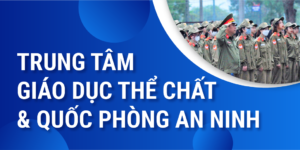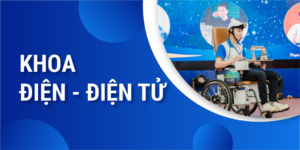- Câu hỏi 25825:
Read the following article and decide if the statement below is TRUE (A), FALSE (B) or NOT GIVEN (C)
Shambo, the bull at the centre of a three-month legal fight, has been killed. After a positive test for TB, an order was made for his slaughter, in keeping with the law. However, the multi-faith community where he lived went to court to try to save him as he was a sacred animal to Hindus.A High Court judge said that the order to kill him was unlawful, but the decision was overturned in the Appeal Court. Police had to be called in as worshippers had formed a human shield around the animal to stop him being taken away. Opinion is very divided on the issue- some believe that he was a danger to the national herd and needed to be killed, while others feel that religious beliefs should be respected and the community had offered to provide sufficient measures to ensure that he would not infect any other animals if he contracted the disease as they planned to isolate him. The authorities cut through the security fence and led the bull away. The following morning they announced that he had been given a lethal injection.
The debate on the issue is unlikely to end with the death of Shambo and may widen into a debate about the policy of killing cows that test positive for TB.
Statement: The community did not do much to try to save him.
Top of Form
A. FALSE
B. NOT GIVEN
C. TRUE
- Câu hỏi 25834:
Read the following article and decide if the statement below is TRUE (A), FALSE (B) or NOT GIVEN (C)
Shambo, the bull at the centre of a three-month legal fight, has been killed. After a positive test for TB, an order was made for his slaughter, in keeping with the law. However, the multi-faith community where he lived went to court to try to save him as he was a sacred animal to Hindus.A High Court judge said that the order to kill him was unlawful, but the decision was overturned in the Appeal Court. Police had to be called in as worshippers had formed a human shield around the animal to stop him being taken away. Opinion is very divided on the issue- some believe that he was a danger to the national herd and needed to be killed, while others feel that religious beliefs should be respected and the community had offered to provide sufficient measures to ensure that he would not infect any other animals if he contracted the disease as they planned to isolate him. The authorities cut through the security fence and led the bull away. The following morning they announced that he had been given a lethal injection.
The debate on the issue is unlikely to end with the death of Shambo and may widen into a debate about the policy of killing cows that test positive for TB.
Statement: The case went to more than one court.
Top of Form
A. TRUE
B. NOT GIVEN
C. FALSE
- Câu hỏi 25843:
Read the following article and choose the best answer for the following question:
Leading investors have joined the growing chorus of concern about governments and companies rushing into producing biofuels as a solution for global warming, saying that many involved in the sector could be jeopardising future profits if they do not consider the long-term impact of what they are doing carefully.It is essential to build sustainability criteria into the supply chain of any green fuel project in order to ensure that there is no adverse effect on the surrounding environment and social structures. The report produced by the investors expresses concern that many companies may not be fully aware of the potential pitfalls in the biofuel sector.Production of corn and soya beans has increased dramatically in the last years as an eco-friendly alternative to fossil fuels but environmental and human rights campaigners are worried that this will lead to destruction of rain forests. Food prices could also go up as there is increased competition for crops as both foodstuffs and sources of fuel. Last week, the UN warned that biofuels could have dangerous side effects and said that steps need to be taken to make sure that land converted to grow biofuels does not damage the environment or cause civil unrest. There is already great concern about palm oil, which is used in many foods in addition to being an important biofuel, as rain forests are being cleared in some countries and people driven from their homes to create palm oil plantations.An analyst and author of the investors' report says that biofuels are not a cure for climate change but they can play their part as long as governments and companies manage the social and environmental impacts thoroughly. There should also be greater measure taken to increase efficiency and to reduce demand.
Question: Environmentalists believe that increased production of corn and soya
A. will lead to the destruction of rain forests
B. has destroyed rain forests.
C. may lead to the destruction of rain forests
- Câu hỏi 25852:
Read the following article and decide if the statement below is TRUE (A), FALSE (B) or NOT GIVEN (C)
Some scientists have predicted that healthy adults and children may one day take drugs to improve their intelligence and intellectual performance. A research group has suggested that such drugs might become as common as coffee or tea within the next couple of decades.
To counter this, students taking exams might have to take drugs tests like athletes. There are already drugs that are known to improve mental performance, like Ritalin, which is given to children with problems concentrating. A drug given to people with trouble sleeping also helps people remember numbers.
These drugs raise serious legal and moral questions, but people already take vitamins to help them remember things better, so it will not be a simple problem to solve. It will probably be very difficult to decide at what point a food supplement becomes an unfair drug in an examination.
Statement: Students could have to take intelligence drugs tests.
A. TRUE
B. NOT GIVEN
C. FALSE
- Câu hỏi 676179:
Read the following article and decide if the statement below is TRUE (A), FALSE (B) or NOT GIVEN (C)
Considering their wedding cost over $20,000 and took a year and a half to organize, you would be surprised to hear that Richard and Victoria Hammond now intend to forget it. Well, almost.
"It was a wonderful wedding, an unbelievable day," says Victoria. "But we have so much we want to do together now, we are both looking to the future." Her husband, banker and amateur race driver Richard, agrees. "Both our minds are now fixed firmly on the future. I'll never forget our wedding ceremony or the reception we had at a cliff-side hotel afterwards, but there's so much we want, so many hopes. Our marriage is so much more important than the wedding."
"At the moment, we are still living with my parents," explains Victoria, "so our first wish is to find our own place. We intend to start looking for a new house with all the modern conveniences in the suburbs in the new year." Both Victoria and husband Richard have a lot of siblings. Do they intend to add to the extended Hammond family? "We plan on having two or three children ourselves," Richard tells me. "Victoria is just wonderful with children and I can get 3 years paternity leave from my work, which is just perfect."
The young couple has just returned from a two-week honeymoon spent in an authentic Scottish castle. Both the newly-weds are big travel lovers and Richard hopes this will continue. "I would like to go travelling as much as possible together. Travelling with someone else is such a sharing experience. I think it's sad to experience all the wonderful places in the world and have no-one else there." Victoria also has another great travel ambition that she might have to do alone. "I have always been fascinated by safari and my real wish is to go on safari. Richard has no interest in wildlife though."
And what about the marriage itself? In a world with such a high divorce rate, how do Richard and Victoria hope to avoid all the problems that beset so many other couples? Richard explains thoughtfully that "our ambition is to always talk to each other. If you stop communicating, what chance do you have?" His wife goes along with that completely. "I hope that we can speak about things, but also not expect everything to be easy. I think many people expect the wedding to be the end of getting to know each other. I think it's the start."
Statement: Victoria wants an old fashioned house.
A. NOT GIVEN
B. TRUE
C. FALSE
- Câu hỏi 676190:
Read the following article and decide if the statement below is TRUE (A), FALSE (B) or NOT GIVEN (C)
Come and sail on a Crystal Cruise ship. We have three ships: The Crystal Queen, The Crystal Princess, The Crystal Palace.
Come and sail in luxury on cruises around the Caribbean Sea for 7 or 14 days.
Our seven-day cruise costs $2000 and our two-week cruise is $3500.
A typical one week cruise
Day One - departure from Miami
Day Two - free day in Nassau, in The Bahamas
Day Three - near Haiti
Day Four - visit Puerto Rico and Antigua
Day Five - free day in Barbados
Day Six - free day in Port of Spain, Trinidad
Day Seven - travel to Caracas, Venezuela
Day Eight - fly home.
All food and drink is included in the price of your cruise (except for alcoholic drinks). Our cruise ships all have a casino, a cinema, a five-star restaurant, a theatre, a library and a fully equipped gymnasium.
If you prefer to go on a cruise in another part of the world, we also organize cruises in the Baltic Sea and the Mediterranean.
Our ships carry over 2000 passengers and we have nearly 600 crew members.
So come on board today for the holiday of a lifetime!Call immediately: 020-4455832
Statement: You can go on a cruise for two weeks.
A. FALSE
B. NOT GIVEN
C. TRUE
- Câu hỏi 676194:
Read the following article and decide if the statement below is TRUE (A), FALSE (B) or NOT GIVEN (C)
Considering their wedding cost over $20,000 and took a year and a half to organize, you would be surprised to hear that Richard and Victoria Hammond now intend to forget it. Well, almost.
"It was a wonderful wedding, an unbelievable day," says Victoria. "But we have so much we want to do together now, we are both looking to the future." Her husband, banker and amateur race driver Richard, agrees. "Both our minds are now fixed firmly on the future. I'll never forget our wedding ceremony or the reception we had at a cliff-side hotel afterwards, but there's so much we want, so many hopes. Our marriage is so much more important than the wedding."
"At the moment, we are still living with my parents," explains Victoria, "so our first wish is to find our own place. We intend to start looking for a new house with all the modern conveniences in the suburbs in the new year." Both Victoria and husband Richard have a lot of siblings. Do they intend to add to the extended Hammond family? "We plan on having two or three children ourselves," Richard tells me. "Victoria is just wonderful with children and I can get 3 years paternity leave from my work, which is just perfect."
The young couple has just returned from a two-week honeymoon spent in an authentic Scottish castle. Both the newly-weds are big travel lovers and Richard hopes this will continue. "I would like to go travelling as much as possible together. Travelling with someone else is such a sharing experience. I think it's sad to experience all the wonderful places in the world and have no-one else there." Victoria also has another great travel ambition that she might have to do alone. "I have always been fascinated by safari and my real wish is to go on safari. Richard has no interest in wildlife though."
And what about the marriage itself? In a world with such a high divorce rate, how do Richard and Victoria hope to avoid all the problems that beset so many other couples? Richard explains thoughtfully that "our ambition is to always talk to each other. If you stop communicating, what chance do you have?" His wife goes along with that completely. "I hope that we can speak about things, but also not expect everything to be easy. I think many people expect the wedding to be the end of getting to know each other. I think it's the start."
Statement: Victoria thinks she now knows Richard sufficiently well.
A. FALSE
B. TRUE
C. NOT GIVEN
- Câu hỏi 676220:
Read the following talks about eating out and answer the question below:
1.The last time I went to a restaurant was about 2 months ago. My wife and I wanted to celebrate our wedding anniversary with a good meal so we went to an expensive Italian restaurant in downtown Lisbon. We both had pasta to start and for the main course my wife ordered a steak and I chose fish. For dessert we both ate chocolate cake topped with fresh cream. Delicious!
2. I went to a restaurant yesterday evening with my sister's children. It wasn't very expensive and the menu was very limited. We all had a burger and French fries, and drank cola. It wasn't very good.
3. My boyfriend loves spicy food so this restaurant was perfect. The waiters were all really friendly and polite, and they played traditional sitar music which was very relaxing. The menu offered vegetarian dishes as well as meat dishes served with rice and a sauce - it depended on how hot you wanted it! I chose a mild beef curry but my boyfriend had a lamb 'vindaloo' - he also drank 2 liters of water!!
4. My class at the university went there last weekend. It's a very popular type of restaurant in my country. It generally offers one type of food (a kind of bread with cheese and tomato sauce) which you then choose what ingredients to add on top of it. I asked for olives and mushrooms on mine and my classmates each had something different so we could taste a piece of each person's meal.
Question: In which text did the person eat pizza?
A. Paragraph 4
B. Paragraph 3
C. Paragraph 1
- Câu hỏi 676229:
Read the following article and decide if the statement below is TRUE (A), FALSE (B) or NOT GIVEN (C)
Considering their wedding cost over $20,000 and took a year and a half to organize, you would be surprised to hear that Richard and Victoria Hammond now intend to forget it. Well, almost.
"It was a wonderful wedding, an unbelievable day," says Victoria. "But we have so much we want to do together now, we are both looking to the future." Her husband, banker and amateur race driver Richard, agrees. "Both our minds are now fixed firmly on the future. I'll never forget our wedding ceremony or the reception we had at a cliff-side hotel afterwards, but there's so much we want, so many hopes. Our marriage is so much more important than the wedding."
"At the moment, we are still living with my parents," explains Victoria, "so our first wish is to find our own place. We intend to start looking for a new house with all the modern conveniences in the suburbs in the new year." Both Victoria and husband Richard have a lot of siblings. Do they intend to add to the extended Hammond family? "We plan on having two or three children ourselves," Richard tells me. "Victoria is just wonderful with children and I can get 3 years paternity leave from my work, which is just perfect."
The young couple has just returned from a two-week honeymoon spent in an authentic Scottish castle. Both the newly-weds are big travel lovers and Richard hopes this will continue. "I would like to go travelling as much as possible together. Travelling with someone else is such a sharing experience. I think it's sad to experience all the wonderful places in the world and have no-one else there." Victoria also has another great travel ambition that she might have to do alone. "I have always been fascinated by safari and my real wish is to go on safari. Richard has no interest in wildlife though."
And what about the marriage itself? In a world with such a high divorce rate, how do Richard and Victoria hope to avoid all the problems that beset so many other couples? Richard explains thoughtfully that "our ambition is to always talk to each other. If you stop communicating, what chance do you have?" His wife goes along with that completely. "I hope that we can speak about things, but also not expect everything to be easy. I think many people expect the wedding to be the end of getting to know each other. I think it's the start."
Statement: The wedding was expensive.
A. TRUE
B. FALSE
C. NOT GIVEN
- Câu hỏi 676231:
Read the following talks about eating out and answer the question below:
1.The last time I went to a restaurant was about 2 months ago. My wife and I wanted to celebrate our wedding anniversary with a good meal so we went to an expensive Italian restaurant in downtown Lisbon. We both had pasta to start and for the main course my wife ordered a steak and I chose fish. For dessert we both ate chocolate cake topped with fresh cream. Delicious!
2. I went to a restaurant yesterday evening with my sister's children. It wasn't very expensive and the menu was very limited. We all had a burger and French fries, and drank cola. It wasn't very good.
3. My boyfriend loves spicy food so this restaurant was perfect. The waiters were all really friendly and polite, and they played traditional sitar music which was very relaxing. The menu offered vegetarian dishes as well as meat dishes served with rice and a sauce - it depended on how hot you wanted it! I chose a mild beef curry but my boyfriend had a lamb 'vindaloo' - he also drank 2 liters of water!!
4. My class at the university went there last weekend. It's a very popular type of restaurant in my country. It generally offers one type of food (a kind of bread with cheese and tomato sauce) which you then choose what ingredients to add on top of it. I asked for olives and mushrooms on mine and my classmates each had something different so we could taste a piece of each person's meal.
Question: In which text did someone eat seafood?
A. Paragraph 4
B. Paragraph 3
C. Paragraph 1

















